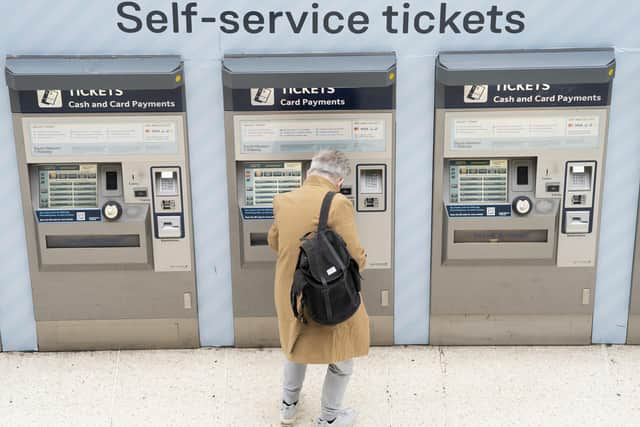Rail ticket office closures are about modernising the passenger experience - Huw Merriman
The consultation was extended. The 21-day period that was first used was the requirement under the ticketing and settlement agreement, which predates 2010. The volume of responses and interest in the consultation meant that it was recognised that it was right to extend it. I am glad that it was extended.
The train operator consultations ended on September 1 and yielded more than 680,000 responses.
Advertisement
Hide AdAdvertisement
Hide AdNow, the independent passenger bodies - Transport Focus and London TravelWatch for stations in London—are engaging with train operators on the consultation response received and the criteria set out.


I have spoken to the leads of the passenger bodies to ensure they have the resources and to discuss some of the points they may make. I also spoke to the train operator managing directors to discuss where these proposals may come out.
I expect the train operators to work collaboratively with the passenger bodies in the coming weeks, to respond to the concerns raised and to refine their proposals accordingly.
There has been much discussion about reduction of hours and expertise at stations with ticket offices. At this stage, I do not expect a material reduction in the number of hours where ticketing expertise is available at stations, in the manner that some have described.
Advertisement
Hide AdAdvertisement
Hide AdWhen we talk about redeployment, it is important to note that the volume of hours is similar to what we currently have.
Where agreement cannot be reached between the operators and the passenger bodies, individual cases may be referred to the Secretary of State for a decision. That is the next stage of the consultation.
At that point, he will look to the guidance under the ticketing and settlement agreement. That guidance was updated in April 2022, following targeted consultation with stakeholders.
The update was made to ensure decision making could account for differences between stations and modern retailing practices. That included replacing the numerically “busy” ticket office sales threshold with a wider range of factors that should be considered, including how proposals would impact customer service; security at stations; modernising retail practices, such as availability of pay-as-you-go ticketing, which continues to be rolled out; and support for passengers with disabilities, accessibility or other equality-related needs.
Advertisement
Hide AdAdvertisement
Hide AdIt remains important that we reform our railway to enable staff to provide a more flexible, agile and personal service, creating the modern experience that people expect. We should also look for ways to ensure value for money for the taxpayer.
I know from listening to constituents and parliamentarians that there is great interest in what will happen to ticket office staff should there be any changes.
The changes are about modernising the passenger experience, by moving expert ticketing staff out of ticket offices to be more visible and accessible around the station.
Rail Minister Huw Merriman was speaking during a debate on Railway Ticket Offices in Parliament.